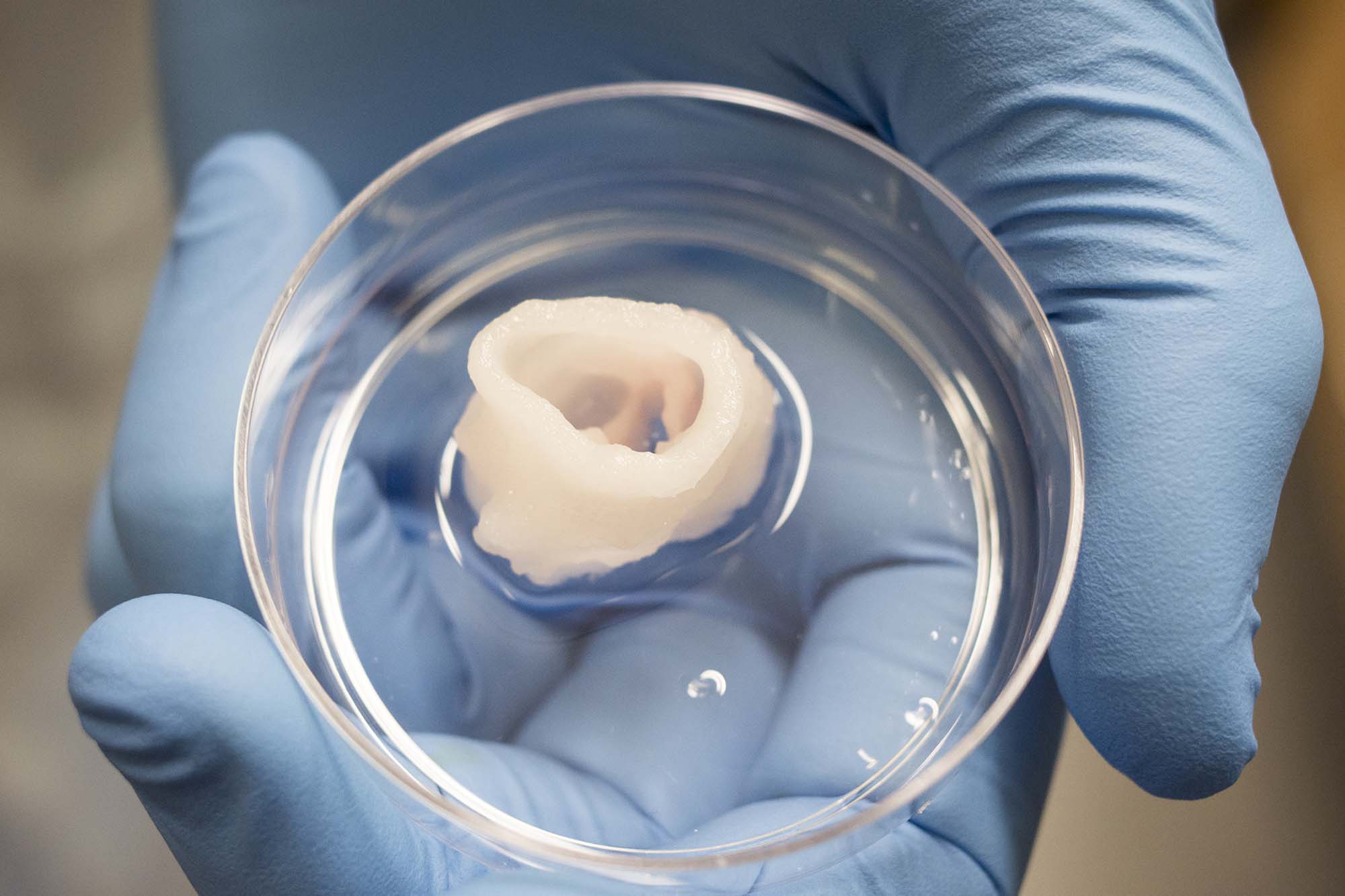Bridging engineering and medicine to better human health.
Biomedical engineering is a bridge connecting engineering and the physical sciences with biology and medicine. We explore the behavior of physiological systems and design effective new biomedical devices and therapies, enhancing life and our understanding of its potential.
Our Programs
Biomedical engineering combines engineering with medical sciences to improve healthcare. Our programs are ideal for those driven to innovate in medical devices, diagnostics, and treatment technologies.
Strategic Research Areas
-
![Two students in white lab coats and protective goggles examine a piece of equipment in the biomechanics lab]()
Biomechanics and Mechanobiology
Investigating mechanical forces in physiological and disease processes.
-
![Professor Nozomi Nishimura conducts an experiment as green light reflects off her in the Schaffer-Nishimura lab.]()
Biomedical Imaging and Instrumentation
Developing imaging technologies and instruments.
-
![scanning electron microscope of outer membrane vesicles used for drug delivery]()
Drug Delivery and Nanomedicine
Designing systems to deliver medicines and measure their effects.
-
![Fischbach-primary osteoclasts on glass]()
Molecular and Cellular Engineering
Applying engineering to cell and molecular biology approaches to identify novel disease therapies.
-
![Undergraduate students work together in lab with computers and calculators]()
Engineering Education Research
Studying education systems to define, inform and improve the education of engineers.
-
![Systems and Synthetic Biology imaging of human heart De Vlaminck Lab]()
Systems and Synthetic Biology
Integrating experimental, modeling, and engineering approaches to dissect complex cellular phenomena at the network-scale.
-
![3d printed heart valve in glass petri dish in gloved hand.]()
Tissue Engineering and Biomaterials
Developing strategies for tissue recreation and modeling systems for research or drug testing.
Upcoming Events
News Highlights
-

Undergraduate selected a 2025 Optica Women Scholar for microscope development research
Undergraduate recognized for excellence in research to enhance imaging techniques using multi-photon microscopes.
-

Hitting the target: Imaging reveals psilocybin’s neural odyssey
Cornell researchers have identified a pair of key neurological mechanisms in the brain – a cell type and receptor – that enable the psychedelic compound’s long-lasting effects.
-

3 faculty inducted into 2025 Class of AIMBE College of Fellows
Engineering professors Ilana Brito, Iwijn De Vlaminck and Krystyn Van Vliet were inducted into the American Institute for Medical and Biological Engineering College of Fellows Class of 2025 for contributions to engineering and medicine research.
-

Study to explore nerve-like behavior of bone cells with NSF grant
Cornell biomedical engineers will use the grant to investigate how osteocytes – specialized cells that respond to and regulate forces within bones – interact with and are impacted by the part of the nervous system that controls rest related involuntary functions such as digestion and heart rate.














